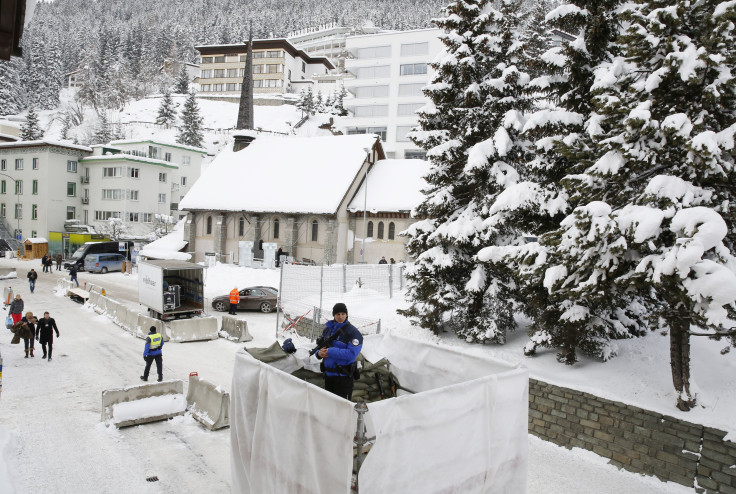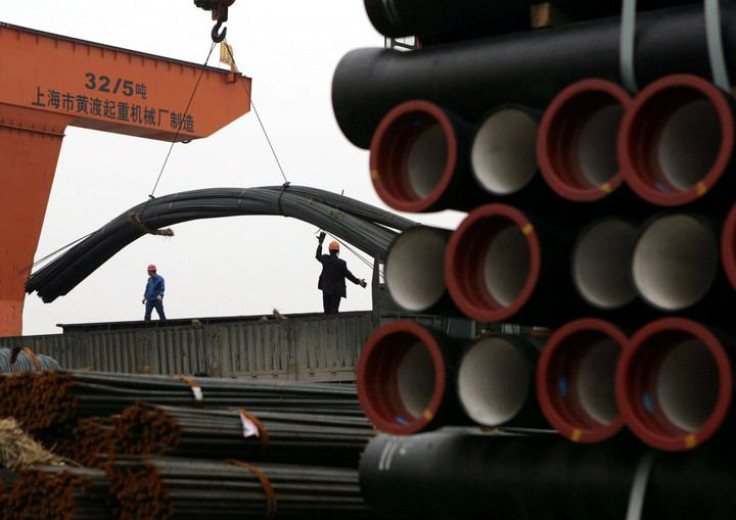Davos 2016: China Slowdown, Terrorism Threats Drive CEOs' Pessimism Over Global Economy

DAVOS, Switzerland — The people running multinational corporations are increasingly pessimistic about the fate of the global economy, expressing anxieties about persistent geopolitical conflicts and the consequences of the slowdown in China. Such is the takeaway from a survey of chief executive officers released here Tuesday, on the eve of the World Economic Forum, by the global accounting firm PricewaterhouseCoopers.
Only 27 percent of the more than 1,400 CEOs surveyed said they anticipate an acceleration in global economic growth this year — a decline of 10 percentage points compared to last year, and 17 percent lower than in 2014. Nearly one-fourth of all CEOs envisioned an outright contraction in the global economy in 2016, up from 17 percent of the CEOs polled a year ago.
“CEOs today are feeling a lot less optimistic than they did just a year ago,” PwC Chairman Dennis M. Nally said, as he released the report to a room full of reporters. “Bottom line: The trends aren’t good.”
American CEOs were especially glum, with only 12 percent anticipating global economic improvement in 2016, compared to 55 percent a year ago.
The PwC survey underscored a sense of foreboding at work as world leaders and investors gathered in this ski resort in the Alps for the annual exercise known as the World Economic Forum, five days of dealmaking, diplomacy and networking served up amid high-minded talk of “improving the state of the world” — much of it underwritten by global banks and consulting firms.
The grim view speaks in large part to deepening concerns over geopolitical risks, from the looming threat of terrorist attacks in world capitals to continued clashes between Russian and Ukrainian forces, as well as territorial disputes in the waters south and east of China. Some 74 percent of CEOs worldwide listed geopolitical risks as a major concern, second only to “overregulation,” a perennial lament.
Executives continue to fret over the slowdown in China, the world’s second-largest economy. Fears that China’s appetite for the wares of the world will continue to diminish have sown fears around the planet, not least in major producers of raw materials. Brazil’s crippling recession has been amplified by the loss of Chinese orders for its prodigious soybeans. Australian and Canadian mining operations have fallen on hard times as Chinese steel producers stare at oversupply, limiting orders for iron ore and other minerals.

As China’s stock markets have seen share prices plunge in recent months, this has provoked frenzied selling from Tokyo to New York.
All of this may yet intensify. China on Tuesday announced that its economy had grown by 6.9 percent last year — its slowest pace of expansion in a quarter century. PwC forecasts that growth will slow further this year.
“It’s fair to say that CEOs have a lot on their minds,” Nally said.
But even as many worry about the challenges of an increasingly volatile global economy, the survey found disproportionate optimism among CEOs about their own companies’ abilities to secure a growing slice of the spoils: Some 35 percent pronounced themselves “very confident” that their companies would tally increased revenues in 2016; nearly half expected to see their employee headcount increase this year.
Broadly bearish sentiments about economic growth masked significant regional variation, with some areas of the globe seeing marked improvement.
Nearly two-thirds of CEOs in India expressed confidence in economic prospects there, a sentiment that appears to reflect pledges of market reforms from the government of Narendra Modi.
Europe’s CEOs rebounded from the most pessimistic on earth a year ago to the second-most-optimistic, after Africa — a striking turnaround in light of the November terrorist attacks in Paris, continued fears about Greece’s debt crisis, political discord over the fate of a mass influx of refugees, and a looming referendum in the United Kingdom over the question of its potential secession from the European Union.
The turn was particularly pronounced in Spain, where 54 percent of CEOs expressed optimism for revenue growth in 2016, up 19 points compared to a year earlier.
Norbert Winkeljohann, PwC’s senior partner for Germany, said the improved confidence in Europe in part reflected lower interest raises and sharply lower energy prices, as well as a potentially fruitful shifting away from struggling emerging markets such as Brazil while looking ahead to fresh potential opportunities in Iran.
It also spoke to a European situation that in recent years has been so dismal it appears to have finally hit bottom.
“I suspect part of this is that it’s been so bad for so long that there is now a more positive feeling out there,” said Ian Powell, PwC’s senior partner for the United Kingdom.
© Copyright IBTimes 2024. All rights reserved.











